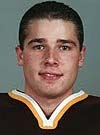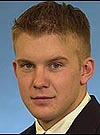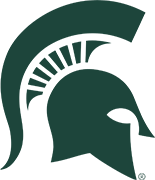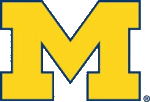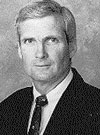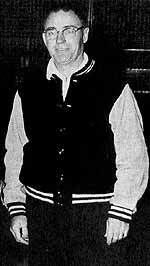College hockey has had a storied history that most would like to see repeated. Right at the top of that list was the 2000 NHL Entry Draft.
That Saturday afternoon in Calgary saw not one, but two college hockey prospects, Rick DiPietro and Dany Heatley, walk to the stage as the top two draft choices, of the New York Islanders and the Atlanta Thrashers, respectively. In all, an unprecedented seven college players were chosen in the first round.
As this year’s entry draft rolls around, every college hockey fan would love to see history repeat itself. We can dream, can’t we?
Maybe the top two draft choices won’t be US college players. Heck, there’s a pretty good chance these players won’t even be from the North American continent. But one thing is certain, college hockey will still have a strong impact on the 2001 Entry Draft.
Each year the NHL’s Central Scouting Service ranks the top draft-eligible players in both North America and Europe. Last’s year’s ranking showed obvious potential for U.S. college hockey, with Heatley leading the list of North American forwards and defensemen, and DiPietro likewise on the North American goaltenders list.
This year’s final CSB rankings show good hope for college prospects, though diminutive compared to one year ago. Six college or college-bound players rank in the top 30, with 69 college or college-bound players ranked overall.
Leading the list of college players is Michigan’s Mike Komisarek, listed fourth in the CSS rankings. A 6-foot-4 defenseman from Michigan, Komisarek is well known for his physical ability on and off the puck. He clears the front of the net very well, and simply put, crushes his opponent.
Michigan coach Red Berenson and Komisarek’s mentor, ex-Islander Gerry Hart, both agree that Komisarek hasn’t come close to reaching his potential yet, even though his presence was well felt around the CCHA and the country last season.
Just one spot behind Komisarek is fellow-CCHAer R.J. Umberger from Ohio State. Standing at 6-foot-2, Umberger is probably the most skilled American-born player in this year’s draft. He is known as a good skater with the ability to create chances every time he is on the ice. His strength and size at the centerman’s position is very attractive to NHL scouts.
Umberger’s teammate and fellow draw man David Steckel ranks next at No. 16. Two inches taller than Umberger at 6-4, Steckel hasn’t reached the potential level that his Buckeye counterpart has. He’s yet to fill out his massive frame and will need to develop further his upper body strength. Look for Steckel to be a late first-round, early second-round pick.
Possibly one of the most underrated players in the draft, Boston College’s Chuck Kobesew checks in next at No. 20. Kobesew ranked third in scoring on a talent-laden BC team last year and, very importantly, was a key contributor in his team’s postseason run to the National Championship.
Kobesew has excellent hockey sense, and even though he only stands at an even 6-foot, he’s known for being strong on the puck and adding a bit of a physical element to the game. Don’t be surprised to see Kobesew an upset pick — possibly the top college player taken.
MSU-Mankato’s Tim Jackman ranks one position lower than Kobesew at No. 21. Like Kobesew, Jackman is also a workhorse. But standing at 6-3, Jackman is known more for being a power forward, using his size and strength to protect the puck and create his scoring chances. Any NHL team whose philosophy is the dump-and-chase will love Jackman as an addition to their club. His work along the board, particularly cycling down low, make Jackman the ideal candidate for the job.
Goaltending is one area where the collegians are lacking this year. Boston University’s Sean Fields, the man recruited in the eleventh hour to replace DiPietro last season, is the top ranked college goalie. He is rated 18th among goalies and will likely be a mid-round pick on Sunday.
Others to watch? Certainly, we have to look for two other strong freshmen-turning-sophomores coming from last year’s Frozen Four: BC’s Ben Eaves and Michigan’s Mike Cammalleri. Both players have extreme potential to be late first-round or early second-round picks. Cammalleri is liked by scouts for his natural hockey talent and offensive ability, while Eaves, standing at only 5-8 shows potential to be an annoying, but successful small forward.
Saturday Specials
With the NHL changing its draft format to a two-day event, only rounds 1-3 will take place on Saturday this year. Here is a list of my picks of collegiate players to don NHL jerseys come Saturday afternoon.
Chuck Kobesew, Boston College: It would be an extreme upset, he could very well be the top college pick in the draft. He may go as high as top 10 in this European-laden draft.
Mike Komisarek, Michigan: Look for this focused and larger-than-life defenseman to be a top 10 or early teens first-round pick.
R.J. Umberger, Ohio State: College hockey got seven first-rounders last year, but Umberger may round out the first-round talent this year. Probably a mid-to-late first round pick.
Tim Jackman, MSU-Mankato: Jackman might surprise us because of his sheer size. If someone needs a power forward, a first-round pick isn’t out of the question. Some scouts, however, have questioned his true ability.
Mike Cammalleri, Michigan: Like Jackman, certainly has first-round potential, but the European influence this year might bump him to round two. Not bad, though, for a CSB ranking of 40.
Dave Steckel, Ohio State: Probably just a little shy of reaching the potential NHL teams would need to see to pick in round one. Definitely a second-round pick.
Frantisek Skladany, Boston University: Not even ranked in the CSB top-100, Skladany could be the highest moving college player. To end up a Saturday pick would be an upset, but very possible.
Ben Eaves, Boston College,: This pint-size player has definite first- or second-round skill, but lacks the size. Early-to-late third round would be a good position for this talented prospect.
Patrick Sharp, Vermont : Ranked 72 by the CSB, don’t be surprised to see this Catamount make a top-three round appearanace. He is aided by an excellent second-half to his freshman campaign.
Paul Lynch, Maine (incoming): This northward bound Black Bear has a 6-foot-4 frame and plays with every ounce of it. His size alone makes him a potential third-round pick, even though he’s unproven.

